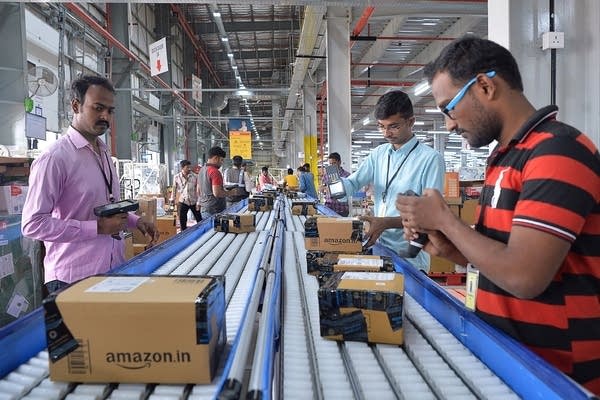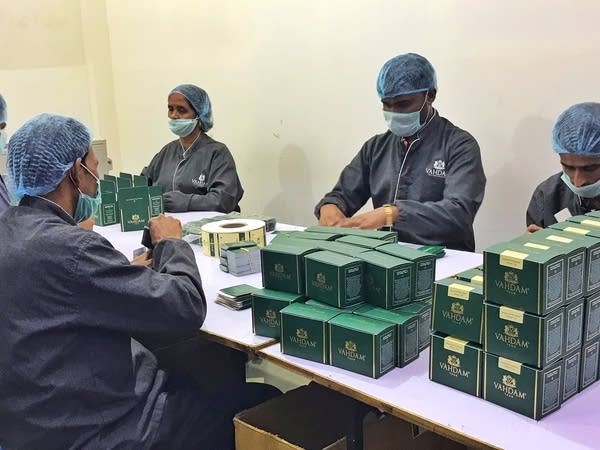As Amazon turns 25, it keeps sights set on India
As Amazon turns 25, a look the relationship with one of its biggest target markets: India.

As America celebrates Independence Day, e-commerce giant Amazon blows out the candles on its 25th birthday cake.
In the last quarter century, Amazon has moved into markets all over the world. But the company has zeroed in on India for its growth potential.
This year, Indian exports via Amazon hit the $1-billion mark, and the Indian government projects e-commerce will grow to $200 billion by 2026. But the country’s draft e-commerce policy creates barriers to large foreign players like Amazon and Walmart.
The companies are not allowed to control the technology and inventory. Instead, they can only connect buyers and sellers. India’s aim is to harness cutting edge foreign technology, while protecting home-grown retailers.
Vahdam Teas, headquartered in the country’s capital New Delhi, sells Indian tea on Amazon primarily to consumers in the U.S. and Europe. Recently it attracted the attention of television star Oprah Winfrey, who added it to her annual “Favorite Things” list last year.

“Her endorsement opened a lot of doors for us, convincing consumers [to buy Indian tea,” said Bala Sarda, CEO of Vahdam Teas. “We wanted to build a brand which sources direct from farmers, packages in India, and takes it to the world.”
While Vahdam Teas sees the U.S. as its biggest market, the company’s CEO says he doesn’t believe giving American retailers equal access to Indian consumers is the right policy. Defending India’s protectionist stance, Mr. Sarda makes an argument you often hear from Indian politicians and businesses.
“I think it’s more fair that what China is where it’s completely blocked out for the entire world to do anything apart from buying from them. But for India, I think it’s also important to have a balance between promoting local businesses and also letting conglomerates like Walmart and Amazon come in. And I think India is doing that,” he said.
American e-commerce companies hoping for more access to the Indian market may have to temper expectations, given how complex the regulations are.
“You finally see that India, instead of incrementally opening, is starting to take a step back when it comes to e-commerce,” said Richard Rossow, senior advisor on U.S.-India policy at the Center for Strategic and International Studies. “One main force pushing back against foreign companies coming in is that India has a lot of small traders and retailers, one constituency that the BJP, the party of Prime Minister Narendra Modi, has catered to.”

Amazon is already present in 100 Indian cities, and according to local media reports, plans to expand to another 60 within the next year.
Correction (July, 8, 2019) A previous version of this story misspelled Vahdam Teas. The text has been updated.










